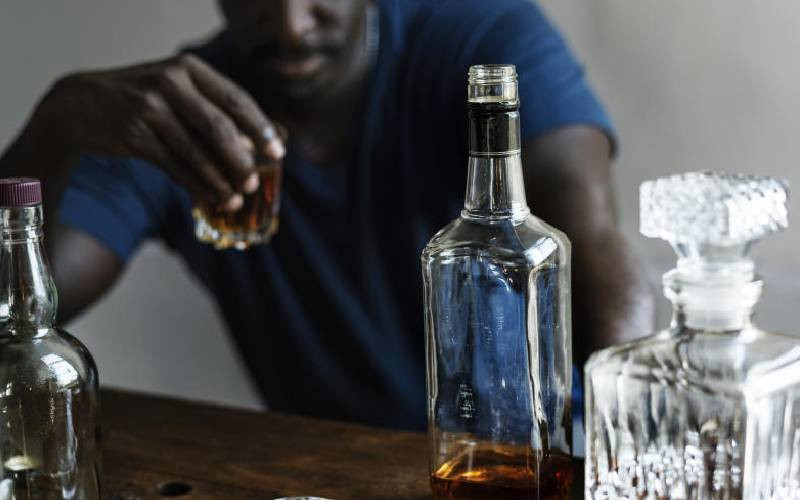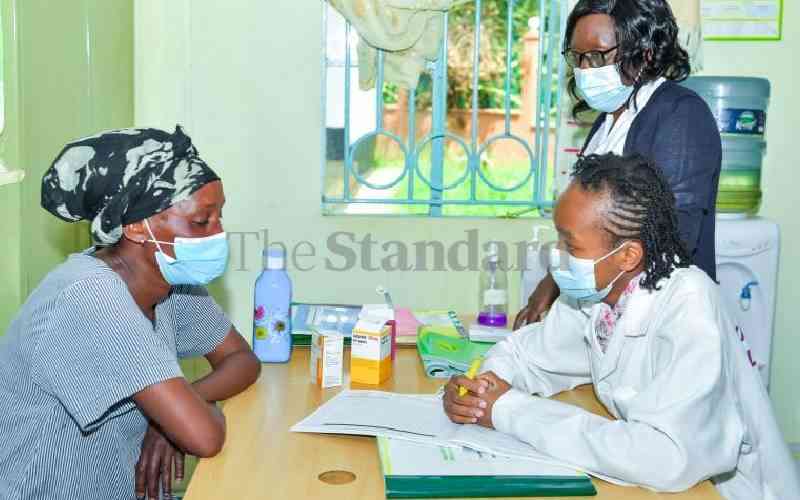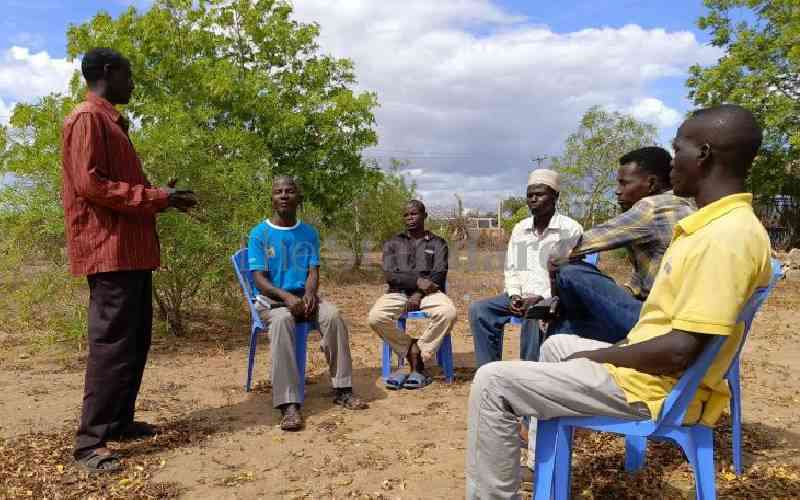Dr Kizito Lubano
It’s official; the holiday travel season is with with us. Historically, after December 12 (Jamuhuri Day) the season kicks off, bringing droves of passengers to the roads and air. This year, because of travel for voter registration it is predicted five million Kenyans would be traveling over holidays.
Holiday travel can bring its unique set of metaphorical headaches, from packed buses, matatus, bodas and jampacked roads to travel delays and holdups. But it comes with some real health concerns as well, such as malaria, diarrhoea, respiratory diseases and sexually transmitted infections, as well as injuries from traffic accidents.
The Christmas message from us is: Zero sexually transmitted infections (STIs,) unwanted pregnancies and HIV infections, this holiday season. The idea is to emphasise the need for the general community, public and private sector organisations, scientists, and social workers to use the knowledge gained through science and experience to take action.
Holidays And Sexual Behaviour
Travel is thought to be a risk factor for the acquisition of STIs because it disrupts individuals’ usual sexual practices through physical separation of partners and removal of social taboos that might inhibit sexual freedom. As travellers are away from their normal environment and often in circumstances that allow anonymous promiscuity, they may become involved in high-risk sexual activity.
Acquisition Of Stis
STIs are infections and resulting clinical syndromes caused by more than 25 infectious organisms transmitted through sexual activity. International and domestic travellers are at great risk of contracting any of these STIs, including HIV, if they have been sexually exposed to persons with any of these diseases.
Population movement has been shown to be a major contributing factor in the global spread of STIs. Increased sexual promiscuity and casual sexual relationships tend to occur during travel abroad to foreign countries.
Travellers may both import and export infection, and the importance of their role in the transmission of STIs is demonstrated by the rapid worldwide spread HIV over the last 25 years.
More than five million Kenyans travel abroad each year for business, pleasure and adventure. Sexual activity is known to vary by season; increased sexual intercourse and unsafe sex occur around the Christmas period and the summer vacation.
Holidays are increasingly being taken abroad and in far-flung locations, and the number of Kenyan residents travelling abroad has increased significantly.
Holidays provide an opportunity for increased sexual mixing whether taken at home (urban or rural) or abroad. In a nutshell, holidays provide an opportunity for increased sexual activities, thus, exposing individuals to different sexual networks.
Prevention Of STIs
Appointments to sexual health experts are at their highest in January. Most are from people who have had an ‘accident’ during the party season because of contraception failure or unprotected sex. More teenagers become pregnant in December and January than any other months of the year.
Things are usually quite before Christmas as everyone is busy and out partying, but calls and appointments then peak in January. Most people call about STIs or unintended pregnancy.
Hypothetically, the risk of acquisition of STIs in travellers is a product of the number of sexual partners, use of condoms, and the prevalence of STIs in other travellers and the contact population of the destination country.
This party season; don’t find yourself with a sexually transmitted infection (STI) or an unintended pregnancy. With a little preparation, you can prevent a mishap from becoming a crisis.
Youth
Young people aged 16 to 24 are at increased risk of STIs because of behavioural, socioeconomic, and biological factors and healthcare provision.
The risk of STIs due to sexual intercourse on holiday is potentially increased through exposure to new sexual networks, the rate at which partners are changed while away, lack of condom use, and consumption of alcohol (an important cause of the modification of sexual behaviour).
HIV is a risk from sexual encounters at home or away, but risk of infection is increased in areas where prevalence is high.
Non-Consensual Sex
Another issue is that of non-consensual sex while on holiday. Genitourinary medicine (Gum) clinics see women, but also men, who have been sexually assaulted while on holiday, particularly away from home.
Confounding factors include use of alcohol, lack of knowledge of the locality, foreign tourists being perceived as easy prey, and increasingly the use of the date rape drug Rohypnol.
Sex Tourism
Tourists travel to seek adventure and new experiences, including sex.
The ultimate risk holiday is that of the sex tourist, where men or women travel long distances with the intention of having sex. Sex tourists tend to be from a slightly older group. Studies show that most are 30 to 40-year-olds and single, with a well-paying job.
Of these, 30 to 40 per cent use condoms, and many do not consider their contacts as prostitutes but as intimate friends, which results in reduced use of condoms. Those not travelling also had sexual contacts within their locality with a new partner, highlighting the risk of onward transmission when sex tourists return home and find those they left. This completes the sexual network and factor tree for STI spread
Long-Distance Travellers
STIs and HIV are known to be higher along the highways and among the long-distance truck drivers.
Several factors contribute to this including low self-risk perception for HIV, low consistent condom use with non-paid partners and wives; low reported exposure to any interventions and low levels of ever having taken an HIV test, make truckers an important bridge population requiring strengthened interventions all round the year.
Inference
Sexual encounters on holiday have the potential to be a major cause of morbidity, and the risk is likely to be greatest in young people and sex tourists.
Casual sex encounters in youth holiday resorts may be commonplace and mediated through substance use. Further focused public health efforts, including in bars and nightclubs, are needed to prevent sexual risk-taking, which can increase the likelihood of poor sexual health outcomes and associated factors such as regretted sex.
 The Standard Group Plc is a multi-media organization with investments in media platforms spanning newspaper print
operations, television, radio broadcasting, digital and online services. The Standard Group is recognized as a
leading multi-media house in Kenya with a key influence in matters of national and international interest.
The Standard Group Plc is a multi-media organization with investments in media platforms spanning newspaper print
operations, television, radio broadcasting, digital and online services. The Standard Group is recognized as a
leading multi-media house in Kenya with a key influence in matters of national and international interest.











